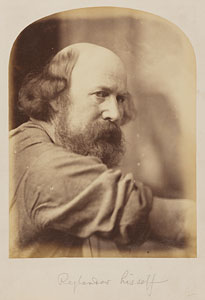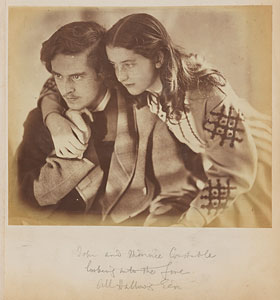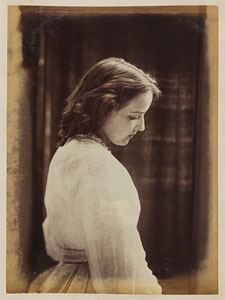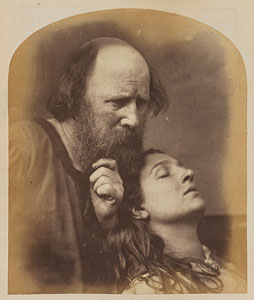National Portrait Gallery acquires 140-year old album by Oscar Rejlander, the father of art photography
posted Thursday, May 19, 2016 at 5:59 AM EDT
If you're a fan of combining multiple images to create a single artwork in Photoshop or one of its many rivals, you owe a tip of the hat to Oscar Gustave Rejlander, the man often referred to as the father of art photography. And what better way could there be to acknowledge his contribution to composite photography than to see a collection of never-before-exhibited Rejlander creations in person? You'll soon be able to do just that at the National Portrait Gallery in London, England, thanks to swift action from the UK government's Department for Culture, Media and Sport and British charity The Art Fund.
In late 2014, an extremely rare 140-year old album containing 70 of Rejlander's albumen prints -- including an early example of the selfie, shown below -- was sold at auction. Since the unidentified buyer was overseas, the sale represented a significant loss for the British public, even if the album's owner was likely thrilled to have received many hundreds of times their originally-intended reserve price of just £100.

Copyright: © National Portrait Gallery, London.
Thankfully for the public, British Culture Minister Ed Vaizey stepped in with a temporary export bar, and The Art Fund subsequently provided the necessary grant to ensure the collection remained inside the UK. Now, the album's contents -- many of which have never before been exhibited in public -- are set to be displayed by the gallery from October 2016.

Copyright: © National Portrait Gallery, London.
So why is Oscar Rejlander referred to as the father of art photography? He's believed to have invented the combination printing technique, in which multiple negatives are combined to create a single final image. It's not clear if any of the images in the album acquired by the National Portrait Gallery use the technique, but even if not, these works are certainly notable as fine examples of Victorian portrait photography by one of Britain's best early photographers.

Copyright: © National Portrait Gallery, London.
Born in Sweden, Rejlander studied art in Rome before moving to the UK some time around the start of the 1840s, when he would have been in his early 30s. Initially a painter, he first tried his hand at photography in 1852. To say that he advanced quickly would be an understatement. He created his best-known work -- a montage called "The Two Ways of Life" which was formed from a whopping 32 negatives, and which controversially included several partially-nude female figures --just five years later.
Throughout his career as a photographer, Rejlander went on to work with or influence household names like Charles Darwin and Lewis Carroll. Even Queen Victoria herself was clearly a fan, purchasing a copy of "The Two Ways of Life" for her husband, Prince Albert.

Copyright: © National Portrait Gallery, London.
No precise date has yet been given by the National Portrait Gallery for the exhibition of Rejlander's works, but if you're keen to attend, you'd be well advised to keep an eye on the gallery's official events calendar. Oh, and our apologies for the extremely low resolution of the images here: While we'd loved to have provided somewhat higher-resolution versions for your viewing pleasure, the gallery unfortunately restricts web use to just 300 x 300 pixels or below. Higher-resolution versions can be seen on The Art Fund's website.
(via Amateur Photographer)